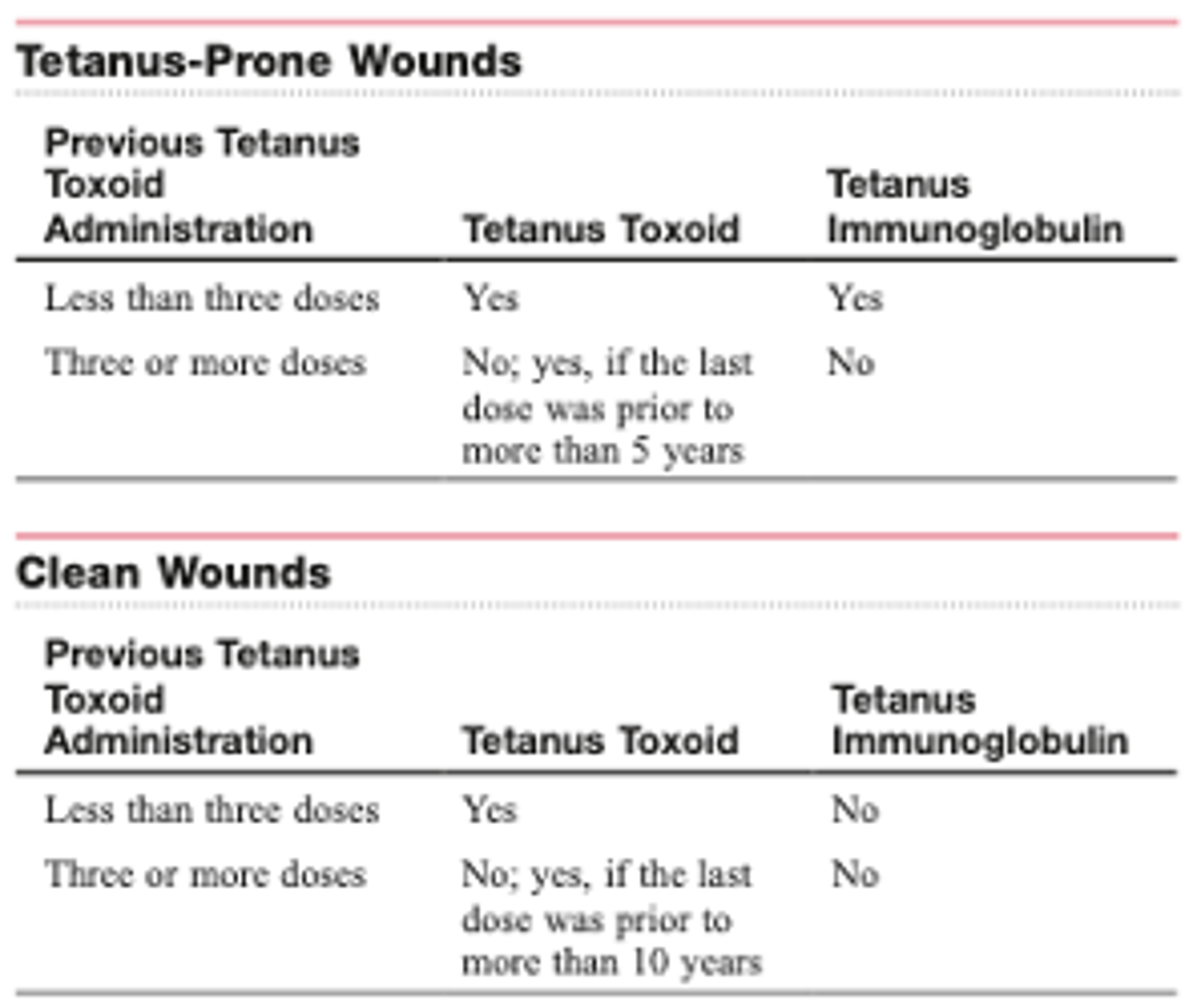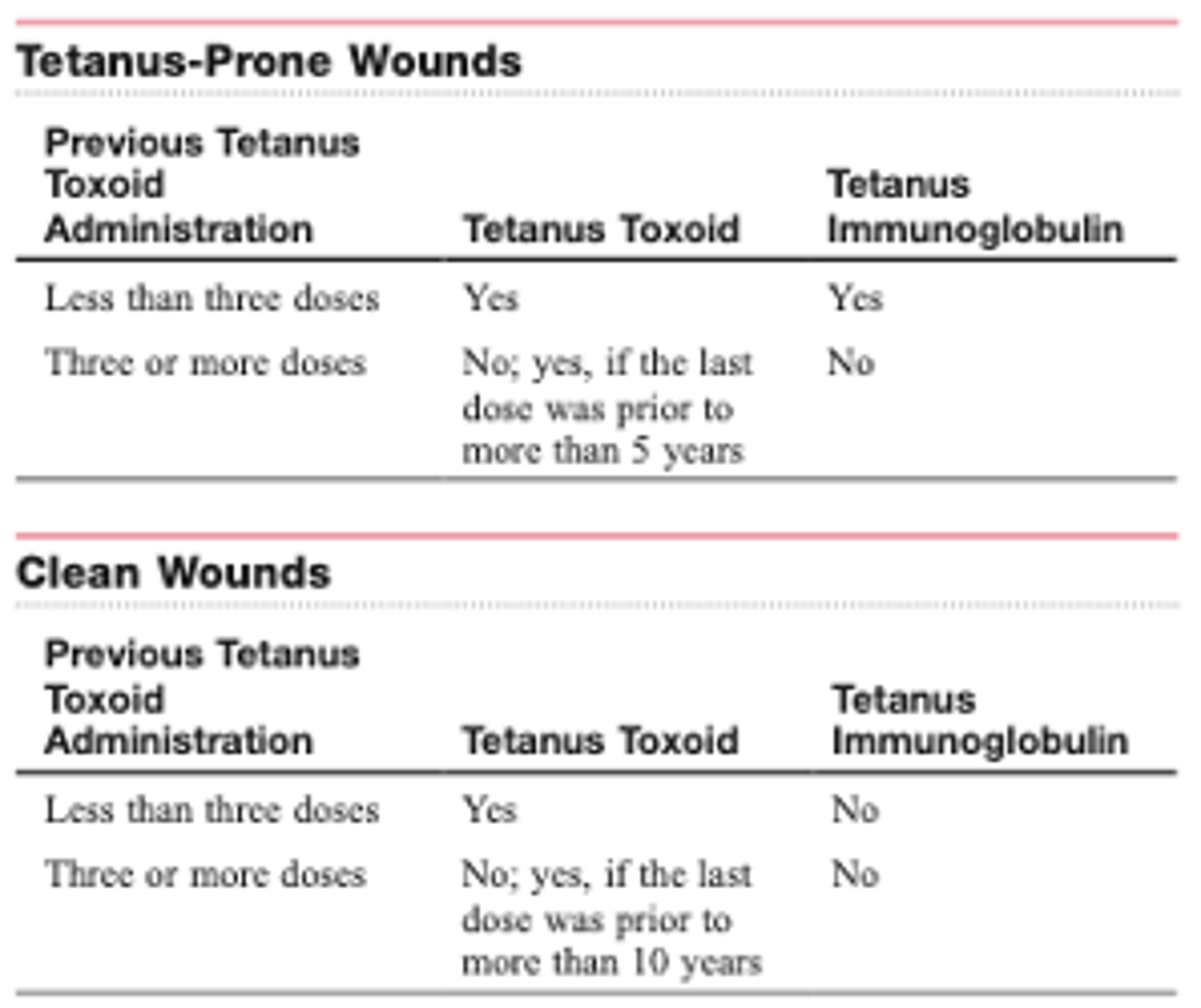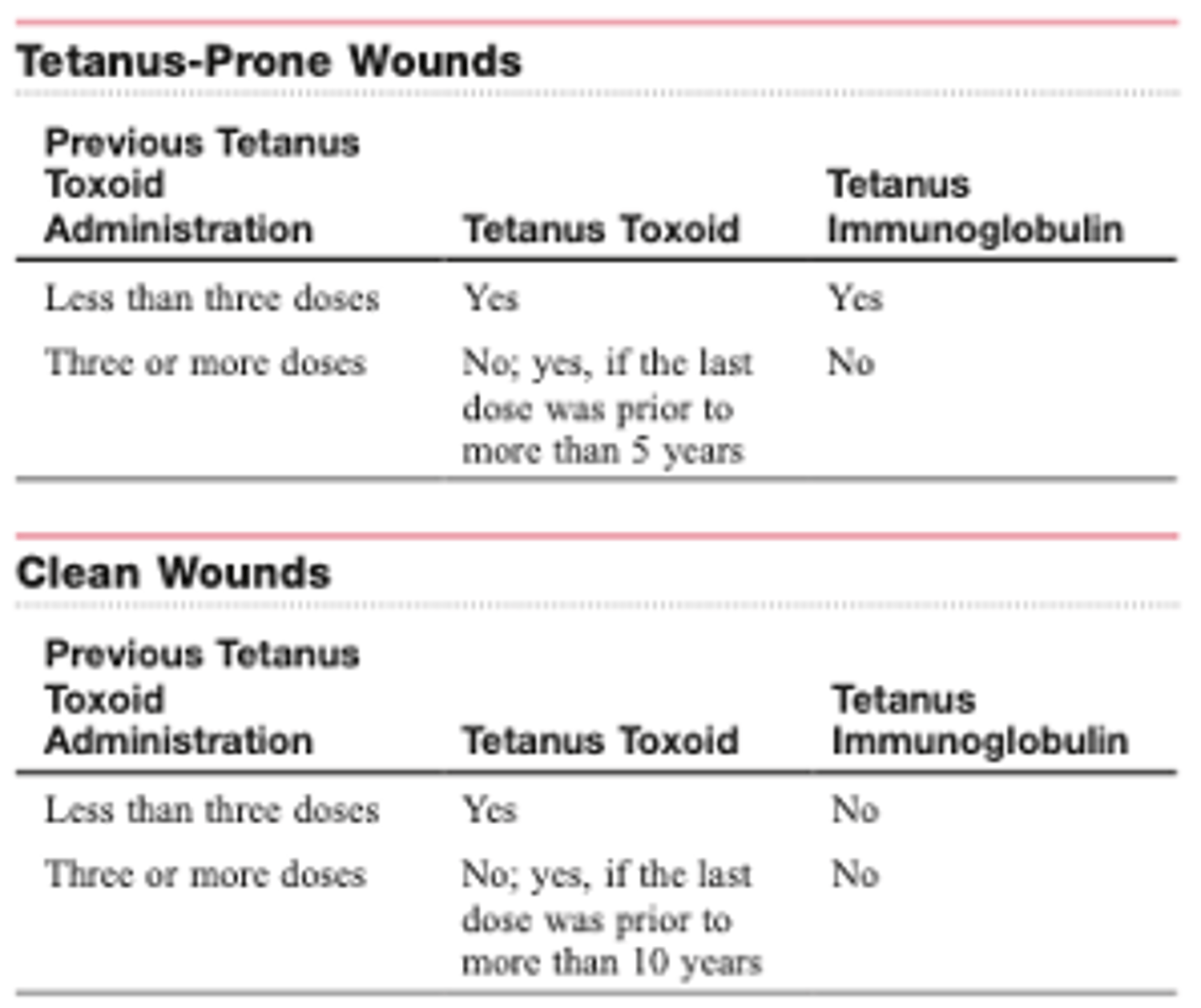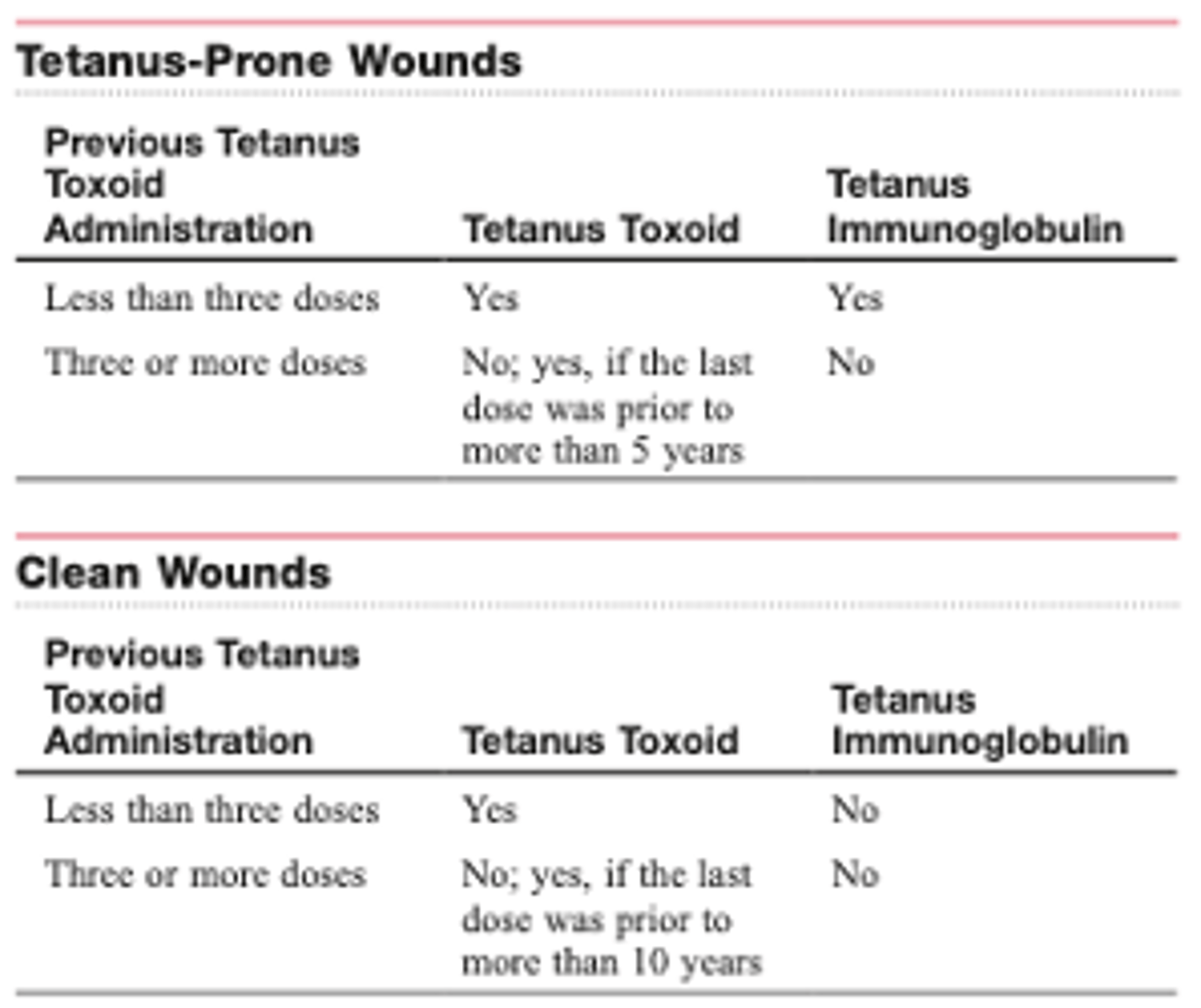5 - Surgical Infection 2024 (Rush Surgery)
1/10
There's no tags or description
Looks like no tags are added yet.
Name | Mastery | Learn | Test | Matching | Spaced |
|---|
No study sessions yet.
11 Terms
What should be given to a patient with a tetanus prone wound who has not yet completed their tetanus vaccination?
Administer tetanus toxoid and immunoglobulin

What should be given to a patient with a tetanus prone wound who has completed their vaccinations but last dose was more than 5 years ago?
Administer tetanus toxoid only

What should be given to a patient with a clean wound who has completed their vaccinations but last dose was more than 10 years ago?
Administer tetanus toxoid only

What should be given to a patient with a clean wound who has not yet completed their tetanus vaccination?
Administer tetanus toxoid only

E. coli
Second most common is Klebsiella pneumoniae
What is the most common etiology of pyogenic liver abscesses?
Encapsulated organism (ex. H. influenzae, N. menigitidis, S. pneumoniae)
Patients also have impaired humoral immunity and are vulnerable for up to 10 years following surgery
What etiologic agents are asplenic patients most vulnerable to post-splenectomy?
Urea breath test
A non-invasive way to determine if there is presence of live H. pylori or not.
What is the best test to assess a patient for eradication H. pylori after treatment?
Bacteroides spp.
What is the most common cause of intraabdominal anaerobic infections?
E. coli
Other agents include: K. pneumoniae. Streptococcal species, including pneumococci and enterococci
What is the most common etiology of spontaneous bacterial peritonitis?
S. aureus
S. epidermidis is second while infections from gram negative bacteria cause more virulent compared to gram positive bacteria
What is the most common etiologic agent of vascular graft infection?
6 weeks
In addition, concern for osteomyelitis is raised in a patient with a swollen foot and a history of foot ulceration, the presence of a “sausage toe” (red, swollen digit), unexplained high WBC count, or inflammatory markers
Osteomyelitis should be suspected in any deep or extensive ulcer overlying any bony prominence and in an ulcer that does not heal in ___ weeks despite appropriate therapy